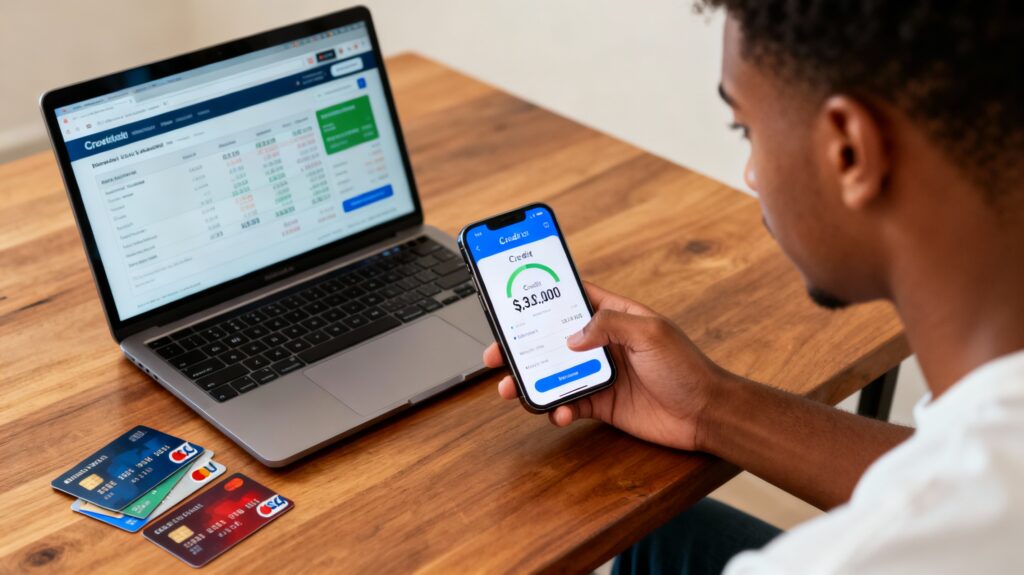Top Bad Money Habits to Break Today for Financial Freedom
Gaining financial freedom is a dream many share, but the path to achieving it is often obstructed by bad money habits that quietly sabotage our progress. Understanding the top bad money habits to break today for financial freedom is fundamental for anyone serious about improving their financial health and building long-term wealth. By identifying these detrimental habits early and taking strategic steps to correct them, you can experience greater control over your finances and peace of mind.
In this article, not only will you discover the most common money mistakes that hold people back, but you’ll also learn actionable strategies for breaking these habits effectively. Along the way, we sprinkle insights with practical budgeting tips for beginners and ways to avoid impulsive spending, ensuring you have a comprehensive approach to mastering your money.
Why Breaking Bad Money Habits is Critical for Financial Freedom
Financial freedom means having enough resources to live comfortably without being stressed about money. But bad money habits create a constant barrier, preventing saving, investing, and smart financial decisions. These habits, often small and seemingly harmless, compound over time, draining your finances and damaging credit scores.
Breaking bad money habits today is important because:
- It improves your ability to build emergency funds
- It creates room for smarter investments
- It reduces debt and interest payments
- It increases your overall financial confidence
The earlier you act, the faster you’ll enjoy the freedom money can provide.
Top Bad Money Habits to Break Right Now
1. Overspending Beyond Your Means
One of the biggest bad money habits is living paycheck to paycheck by consistently spending more than you earn. Overspending leads to credit card debt, overdrafts, and zero savings. To break this habit, track your expenses each month and create a realistic budget that prioritizes needs over wants.
2. Relying on Credit for Everyday Purchases
Using credit cards to cover daily expenses without paying balances in full accumulates interest. Over time credit debt builds, limiting your ability to save or invest. Aim to use credit cards responsibly — only for planned purchases you can immediately pay off.
3. Ignoring Savings and Emergency Funds
Skipping savings altogether or lacking an emergency fund leaves you vulnerable to unexpected bills. Build the habit of setting aside even a small portion from each paycheck. Automate savings transfers to avoid procrastination and safeguard your future.
4. Neglecting to Review or Update Your Budget
A static budget rarely reflects life changes, causing misalignment between income and spending. Regularly review your budget monthly or quarterly and adjust for new expenses, income changes, or financial goals.
5. Impulse Buying Driven by Emotions or Deals
Impulse purchases fueled by emotions or persuasive marketing quickly drain money and clutter your life. Combat this by adopting a waiting period for non-essential purchases and comparing prices before buying.
6. Overlooking Debt Repayment Strategies
Carrying multiple debts without strategy incurs unnecessary interest and longer repayment periods. Use methods like debt avalanche or snowball to tackle debts systematically while minimizing costs.
7. Failing to Plan for Retirement Early
Delaying retirement savings due to immediate expenses costs you compound growth. Even small contributions beginning now can exponentially increase your retirement corpus.
Practical Tips for Breaking Bad Money Habits
Track Every Expense
You can’t fix what you don’t measure. Use apps or spreadsheets to log every expense, no matter how small. Awareness is the first step to change.
Create and Stick to a Budget
Develop a budget based on your income, fixed expenses, and financial goals. Prioritize saving and debt repayment before discretionary spending.
Set Clear Financial Goals
Having concrete goals—whether it’s building a $10,000 emergency fund or investing for a home—motivates better money habits.
Embrace Delayed Gratification
Practice waiting 24-48 hours on non-essential purchases to avoid impulsive decisions.
Use Cash or Debit Cards
Limiting credit card use helps control overspending and prevents interest fees.
Educate Yourself Continuously
Financial literacy empowers you to make smarter decisions. Follow trusted financial blogs, podcasts, or courses for continual improvement.
Related Long-Tail Keywords
Breaking bad money habits often overlaps with broader financial management techniques. Two highly relevant long-tail keywords to keep in mind:
- practical budgeting tips for beginners
- ways to avoid impulsive spending
These phrases capture searches from users ready to take positive steps in personal finance and offer opportunities to expand your content reach.
Q&A Section: Common Questions on Breaking Bad Money Habits
Q1: How long does it take to break bad money habits?
Breaking ingrained habits varies per individual but usually requires consistent effort over at least 21 to 66 days. Tracking progress weekly and celebrating small wins can boost motivation.
Q2: What is the biggest money habit to fix first?
Overspending beyond your means is often the most harmful. Practicing disciplined spending and budgeting lays a solid foundation for all other improvements.
Q3: Can I use credit cards without falling into debt?
Yes. When used correctly, credit cards offer rewards and build credit. The key is paying off balances in full and avoiding unnecessary purchases.
Q4: How can a beginner start saving if income is limited?
Start with small, automatic transfers to savings—even $10 a week adds up. Gradually increase contributions as situations improve.
Q5: Are there apps that can help break bad money habits?
Absolutely. Apps like Mint, YNAB (You Need a Budget), and PocketGuard help track spending, set budgets, and alert overspending.
Final Thoughts on Breaking Bad Money Habits for Financial Freedom
Your financial freedom journey begins by recognizing and breaking the top bad money habits to break today for financial freedom. These habits—overspending, reliance on credit, neglecting savings, and impulsive purchases—are common obstacles but entirely surmountable with the right mindset and tools.
By incorporating practical budgeting tips for beginners and mastering ways to avoid impulsive spending, you not only improve your financial standing but also build lifelong money discipline. The sooner you act, the faster you’ll experience lasting financial peace and confidence.
Stay committed, keep learning, and watch your money work smarter for you every day.
If you need any other edits or formatting changes, just let me know!
How to build free credit store

